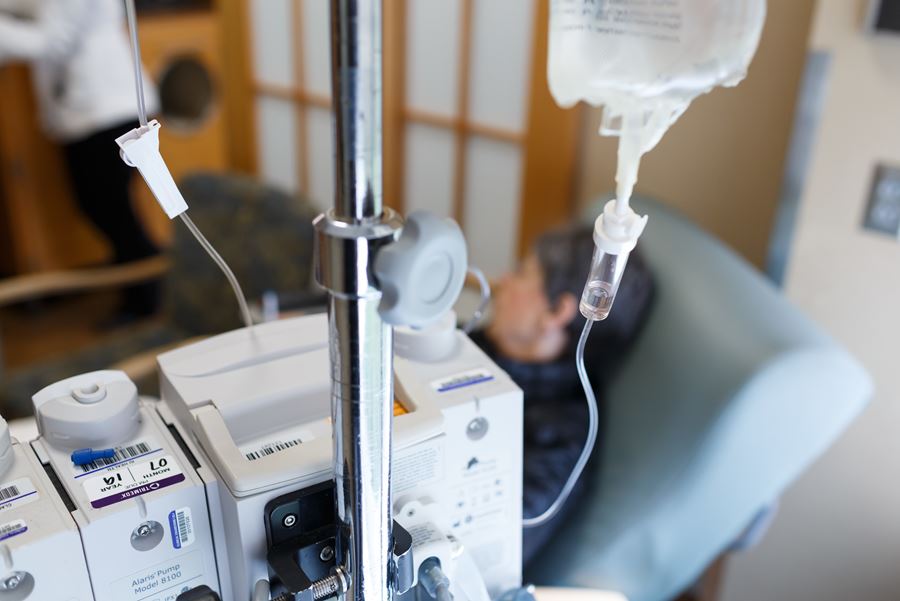A breast cancer diagnosis will disrupt the lives of about 325,000 women in the United States this year, and more than 42,000 are expected to die from the disease in 2020. Although breast cancer affects people of all ethnicities and from all walks of life, some populations are disproportionately impacted.
Compared to white women, the lifetime risk of developing breast cancer is slightly lower for African Americans; however, the risk of dying from the disease is higher for African American women. For years, the medical community thought these disparities could be solely attributed to socioeconomic factors, but current research tells a much more complex story. Biology and genomics are also at play.
“We have seen for decades that African American women have lower incidence of breast cancer but a higher mortality rate. For a long time, we thought that difference could all be attributed to access to care. Several studies tried to control for socioeconomic factors, and when you do that, the differences in mortality get smaller, but they don’t completely go away,” said Kathy Miller, MD, Ballvé Lantero Professor of Oncology at Indiana University School of Medicine and associate director of clinical research at IU Melvin and Bren Simon Comprehensive Cancer Center. “The socioeconomic factors are certainly important and need to be addressed, but there are biologic factors as well.”
According to the American Cancer Society, 40 percent of racial variation in breast cancer subtypes may be due to inherited genetic mutations. Of all ethnicities, African American women are the most likely to develop triple negative breast cancer, an often deadly form of breast cancer that is not responsive to hormone therapies and is resistant to chemotherapy.
Miller is among several IU School of Medicine researchers studying why African American women are more likely to develop aggressive types of breast cancer and how treatments can be tailored to fight these cancers more effectively.
 Using samples of healthy breast tissue from the Susan G. Komen Tissue Bank at IU Simon Cancer Center, Harikrishna Nakshatri, PhD, is leading a project funded by the Chan Zuckerberg Initiative and the Catherine Peachey Fund, a member of the Heroes Foundation family, to map the breast at the single-cell level. He’s noted several differences in breast tissue cells among women of various ethnic backgrounds.
Using samples of healthy breast tissue from the Susan G. Komen Tissue Bank at IU Simon Cancer Center, Harikrishna Nakshatri, PhD, is leading a project funded by the Chan Zuckerberg Initiative and the Catherine Peachey Fund, a member of the Heroes Foundation family, to map the breast at the single-cell level. He’s noted several differences in breast tissue cells among women of various ethnic backgrounds.
“We have identified a unique type of cells which is in the normal breast tissue of African American women that can be a catalyst in aggressive breast cancer development,” said Nakshatri, who is the Marian J. Morrison Professor of Breast Cancer Research at IU School of Medicine and associate director of education for the IU Simon Cancer Center.
Another study, funded by the Department of Defense’s U.S. Army Breast Cancer Research Project, will look at a gene mutation in women of Sub-Saharan African descent which protects them from malaria but also gives them greater risk for developing a highly aggressive form of breast cancer.
“One question we’re trying to answer is, can we model drugs to treat breast cancers with this mutation background, tailored for women with Sub-Saharan ancestry?” Nakshatri said.
Not all genetic differences based on ethnicity are bad news. Native Americans have alleles which protect against breast cancer, Nakshatri noted.
“Some Latinas have inherited these Native American protective alleles,” he added.
 While Nakshatri’s research focuses on identifying and understanding biologic differences in normal breast tissue, several of his IU School of Medicine and IU Simon Comprehensive Cancer Center colleagues are working to develop more effective, tailored therapies. This includes the work of Bryan Schneider, MD, Vera Bradley Professor of Oncology at IU School of Medicine and founding director of the Indiana University Health Precision Genomics program.
While Nakshatri’s research focuses on identifying and understanding biologic differences in normal breast tissue, several of his IU School of Medicine and IU Simon Comprehensive Cancer Center colleagues are working to develop more effective, tailored therapies. This includes the work of Bryan Schneider, MD, Vera Bradley Professor of Oncology at IU School of Medicine and founding director of the Indiana University Health Precision Genomics program.
“What he found was women of African descent were more likely to have severe toxicity with a commonly used chemotherapy drug, more likely to have doses reduced because of that toxicity, and more likely to have worse outcomes,” Miller reported.
Schneider is now working to confirm his results, which show a different chemotherapy drug could be just as effective in fighting the cancer without producing severe toxicity in African American patients.
“If that holds true, that’s huge,” Miller said. “Just by using a different drug, we can give African American women less toxicity and better outcomes.”
Schneider, Miller and Nakshatri are all researchers with the Vera Bradley Foundation Center for Breast Cancer Research.
When people think of cancer research, they often think of developing new drugs and therapies, but it’s equally important to study the efficacy of existing treatments and how they might be tailored to treat not only specific cancer types but also women of different ethnicities.
“Breast cancer is a really challenging, variable disease with fascinating biology,” Miller said. “We’re trying to understand why some treatments that work so well in some women don’t seem to be as effective in other women.”
She can see a day when scientific understanding of biologic differences could lead to differences in prevention recommendations for women of various ethnicities. “But, we’re not there yet,” Miller said.
“For all of us, early detection is one of your best defenses,” she advised.
In addition to following American Cancer Society guidelines for breast cancer screening, Miller recommends lowering risk by employing basic practices of a healthy lifestyle, including eating a balanced diet, exercising, avoiding weight gain (particularly after menopause) and sleeping well.

For anyone who is faced with a breast cancer diagnosis, she invites them to consider participating in a clinical trial, which may improve their personal outcome while also benefitting the medical community’s understanding and treatment of breast cancers.
“Less than 3 percent of adults diagnosed with cancer participate in a clinical trial. But every therapy available today is the result of testing in clinical trial,” Miller said. “Clinical trials should be part of the discussion for all cancer patients.”
Breast Cancer Research and Resources
- To learn more about active research in breast cancer prevention and early detection and drug and new product development, check out the Vera Bradley Foundation Center for Breast Cancer at IU School of Medicine website.
- To learn more about how tumor biology, genomics and patterns of care affect breast cancer outcomes among Black women, see Susan G. Komen’s “A Perfect Storm: Highlighting Breast Cancer Disparities among African-American Women.”
- Important for all women: Review the American Cancer Society recommendations for early detection of breast cancer.
